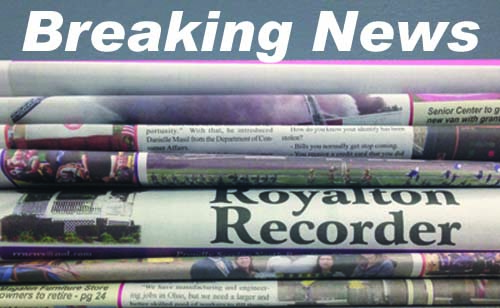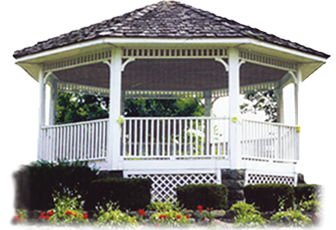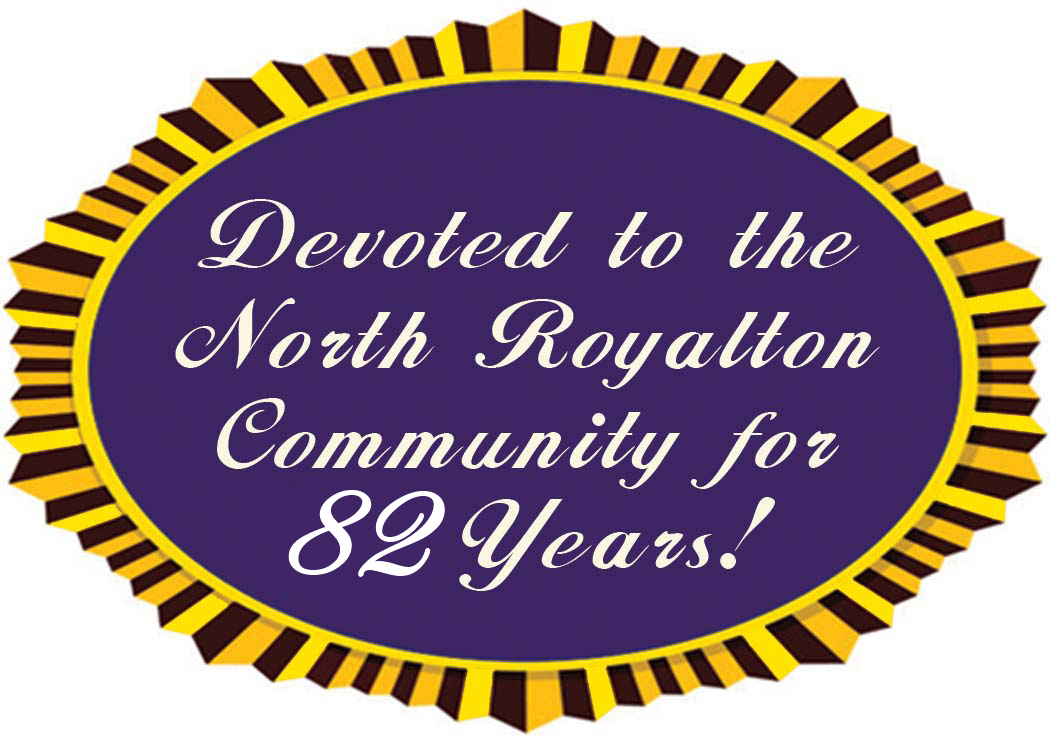The holiday season is upon us. With some precautions and an overall sense of safety, everyone can fully experience a happy, healthy and safe holiday season. Here are some tips culminated from various sources, including the National Safety Council:
Shopping: Try to shop during daylight hours. If you have to shop at night, park in a well-lit area. Make sure all windows are up and your car is locked. Be sure to take your keys and keep all packages and valuables concealed, such as in the trunk. Be aware of your surroundings at all times, as well as your property, such as purse, wallet or packages you are carrying. When returning to your car, carry your keys and be ready to unlock and enter your car as quickly as possible. Upon approaching, look at the area around your vehicle, even underneath, as well as inside.
Gift Giving: Keep your charitable giving to established, reputable organizations. If solicited by an individual for personal donations, don’t give cash. Offer to buy the person food, or refer them to a local resource, such as food bank.
Christmas Trees: Look for the label “Fire Resistant” on artificial trees. Pre-lit artificial trees can pose electrical shock hazards and fire risks. Check for exposed wiring, wiring that is too short, or cords that aren’t plugged in completely. Make sure that electrical outlets are not overloaded. If buying a real tree, check for freshness by pulling the branches of the tree. If the needles are hard to pull from the branches and do not snap in half, the tree is fresh. If the trunk end is sticky with resin, the tree should retain most of its needles. Be sure to cut off a few inches of the trucn before placing it in water. Make sure that the tree has water at all times. Set trees up away from any heat source and out of the way of your traffic pattern. Make sure you get rid of the tree when it is dried out, as it is a fire hazard. Do not leave it in the garage, or lean it against the house.
Decorations: Use only flame resistant or non-combustible material on your tree. Never light candles on or near evergreen trees, wreaths, or boughs, or curtain/drapes. Keep all live holiday plants and flowers out of the reach of children and pets.
Lights: Don’t use lights on a metallic tree or the tree could become charged. Check all lights before using them to be sure that all lights are in order and that there are no frayed wires, loose connections or broken sockets. Make sure lights being used for outdoor decorations are certified for outdoor use. Never use lights with staples, tacks or nails. Plug all outdoor lights into circuits with ground fault circuit interrupters. Be sure that all lights are turned off before you leave the house or go to bed.
Fireplaces: Make sure your trees and greenery is a safe distance from the fireplace. Don’t burn evergreens or wreaths to dispose of them. They can flare out of control and send flames and smoke into the room. Also, don’t burn wrapping paper because it often contains materials that can be toxic if burned.
Food and Cooking: Be sure to wash hands and anything else that has come in contact with raw poultry. Keep in mind that a stuffed bird takes longer to cook. For questions on holiday turkey preparation and cooking call the USDA Meat and Poultry Hotline at 1-800-535-4555. Refrigerate or freeze leftovers in covered containers of less than two inches deep within two hours after cooking. Be sure to keep hot food away from the edge of counters and tables, so that children are not tempted to grab hold.
Traveling: Always know where you are going and how to get there and back. Leave travel information with a friend or relative and check in with them, to ensure that you’ve reached your destination. Check weather information and construction detours. When getting into your car, always lock doors and windows, and keep them locked while driving. This applies for travel trips, or just trips to the grocery store. Keep your car fueled at half a tank or more. If you break down, pull as far onto the shoulder and turn emergency flashers on. Use cell phone to call for assistance, or raise your hood or tie something on to your antenna and wait for law enforcement inside your locked car. If anyone else stops to help, partially roll down your window, and ask them to call for help. Never exit your vehicle. The North Royalton Service Department recommends that when drivers see the snow plow trucks on the streets, to make sure to give them room to work, as their field of vision is limited. “Stay about four car lengths behind the truck so the driver can see you,” says Service Department officials. “Please don’t tailgate and try not to pass them. If you must pass, never pass on the right, take extreme caution and beware of the snow cloud.”
Snow Removal: Residents should be mindful of the city laws regarding snow removal. There have been reports of residents and/or their contractors plowing snow from their driveways across the road and to the other side of the street. When the snow is so voluminous, it piles up quickly and a lot of snow remains in the street. When the temperatures drops and it becomes ice, the plows run into these piles and the size of the piles have actually knocked the truck into the other lane, causing not only a dangerous driving situation, but also sometimes damaging the truck.
In the city of North Royalton, it is against the law for residents and businesses to plow snow into the street. The ordinance, 660.15 SNOW REMOVAL, was adopted in 2005 and reads as follows: “No person, company, contractor, or private snow removal company or entity while in the process of snow plowing or removal shall deposit or cause to be deposited any snow and/or ice that would obstruct, hinder, block or cause injury to any public or private road, sidewalk, driveway. fire hydrant, or to the landscaping of any property. All snow from any premises shall be deposited onto the same premises from which it was moved, plowed or removed. City or state snow plow operations are exempt from this section. The City shall not be responsible for any damage to mailboxes, garbage cans, landscaping or other objects located within the City right-of-way during the course of snow plowing operation.” As stated, this ordinance applies not only to commercial snow plowing/removal companies, but also to individuals. Those not abiding by the law could face a misdemeanor charge.
In order to reduce the amount of snow that enters driveways from the snow plows, residents should place as much snow as possible on the side of the driveway away from the direction of the snow plow. This would be the right side of the driveway when facing the street. Also, making a pocket on the left side of the driveway, so the accumulation of snow will drop into the pocket, reducing the amount of snow that is deposited on the apron.
The North Royalton Police Department reminds residents that if the snow accumulation exceeds two inches, a snow parking ban will be in effect. The ban prohibits vehicles to be parked on the city streets. They also note that “snow needs to be removed from your vehicle. Windows must be clear and license plates visible. Should snow or debris fly off your car and cause a hazard for other drivers, you can be cited,” according to Police Department officials.
General: Residents are asked to clear snow and debris away from fire hydrants, as well as from mail boxes so house numbers are visible, enabling the safety services the fast possible access to your home, in case of emergency. “In an emergency, every second counts,” noted North Royalton Fire Department officials. “Fire hydrants that are blocked, concealed, or difficult to access due to snow or ice and impede emergency fire response. Fire trucks carry a limited amount of water, so one of the first tasks upon arriving at a fire is to locate a water supply from the nearest hydrant. Hydrants covered in snow can be difficult to locate, and uncovering them can waste valuable time needed to fight the fire. Keeping them clear can mean easier access to water and more time doing what really matters – fighting the fire.” Residents are asked to clear a path from the street to the hydrant and a perimeter of about three feet around the hydrant. Home owners should keep their culverts and catch basins free of debris and the build up of ice in order to prevent flooding when temperatures thaw. Also try to keep sidewalks free of snow and ice. Make sure that children stay away from the piles of snow near the road. The Fire Department also recommends that residents clear the snow and ice from the gas meter or furnace vent. “A covered meter or vent can cause your furnace and hot water heater to stop working. Before it stops working, it can lead to carbon monoxide building up in your home,” according to Fire Department officials.
By GLORIA PLEVA KACIK
Contributing Writer
Ensure a safe holiday with these important tips
Royalton Recorder Ensure a safe holiday with these important tipsDec 20, 2019






